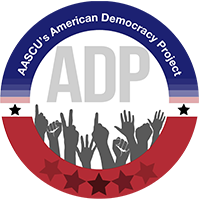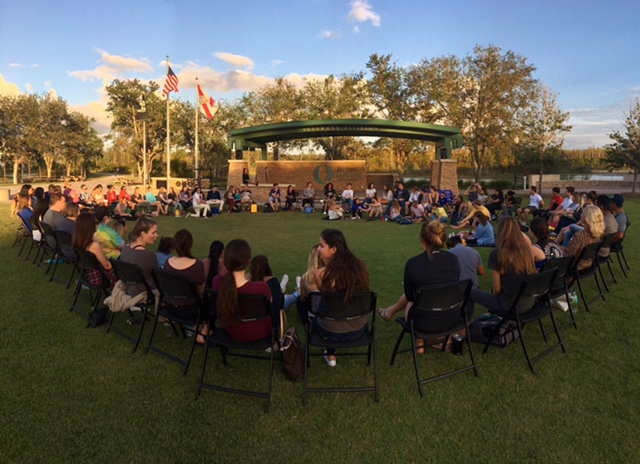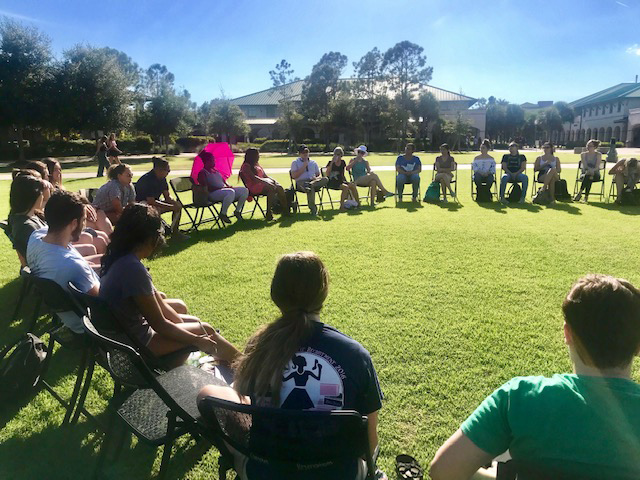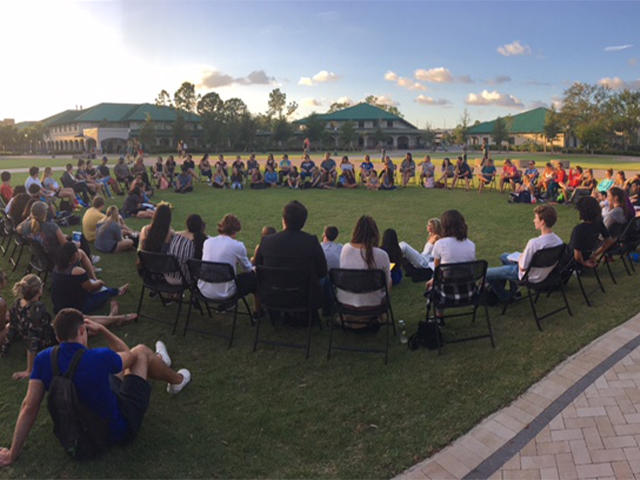Florida Gulf Coast University's American Democracy Project is a student-led organization that has campus-wide dialogue sessions on voting, elections and timely topics, such as the environment.
The American Democracy Project is a non-partisan, multi-campus initiative that seeks to create an intellectual and experiential understanding of civic engagement for undergraduates in institutions belonging to the American Association of State Colleges and Universities (AASCU).
- Increase understanding of democracy's conceptual and historical heritage
- Create understanding of contemporary issues and events
- Provide opportunities to learn and experience core processes of civic engagement
- Develop a commitment to act, to become involved in the life of the community

-
Guided by Our Mission
Toggle More Info -
FGCU's ADP Committee's Mission
Toggle More Info -
What is the ADP?
Toggle More Info -
Need for the Project
Toggle More Info -
Affiliated Programs & Organizations
Toggle More Info
Civic Engagement
A Definition of Civic Engagement
From Thomas Ehrlich (Ed.) Civic Responsibility and Higher Education. Phoenix: Oryx Press, 2000.
Civic engagement means working to make a difference in the civic life of our communities and developing the combination of knowledge, skills, values and motivation to make that difference. It means promoting the quality of life in a community, through both political and non-political processes (from the Preface, page vi).
Civic Responsibility
Civic responsibility means active participation in the public life of a community in an informed, committed, and constructive manner with a focus on the common good. Other examples of civic responsibility often exhibit some or all of the following characteristics:
- Addressing society's problems in an informed manner
- Showing respect as well as dissent for laws
- Recognizing the difference between legally defined and culturally defined citizenship
- Engaging in an active process that goes beyond passive citizenship
- Establishing a balance between rights and responsibilities
- Understanding the concept of the common good and who defines it
- Being able to negotiate differences
- Involving the community in decision-making processes
- Embracing the concept of participatory democracy
- Questioning governmental policies and practices
- Determining ways to alter public policy
- Exhibiting stewardship, i.e., being responsible for one's community
- Recognizing the value and human dignity of each person
- Reaching varying degrees of political awareness and advocacy, ranging from basic knowledge (e.g., knowing the local mayor's name) to developing a voice and making oneself heard
Source: Gottlieb, K., & Robinson, G. (Eds.). (2002). A practical guide for integrating civic responsibility into the curriculum. Washington, DC: Community College Press. Used with permission.



Activities for Civic Engagement and Responsibility
- Ask students to define "citizen" and "citizenship".
- Have students define civic responsibility from individual, family, community, national, and global perspectives.
- Effective citizens possess specific knowledge, skills, attitudes, and behaviors that allow them to excel. Ask students to list as many items as possible under each category that are necessary for effective citizenship.
- Have your students discuss articles, quotations, or videos that present different images of civic engagement and communicate the message of civic responsibility.
- Pose the questions, "What kind of society do we want? What can each of us do to make it that way? What role does civic responsibility play in creating society we want?" Have students pair up and share their ideas with each other, and then ask them to share with the larger group.
- Ask students how civic responsibility can be related to your course, discipline, or profession. Do certain professions model a greater sense of civic responsibility and engagement than others?
- Assign students to write their "citizenship resume," summarizing their own personal experiences in civic engagement.




